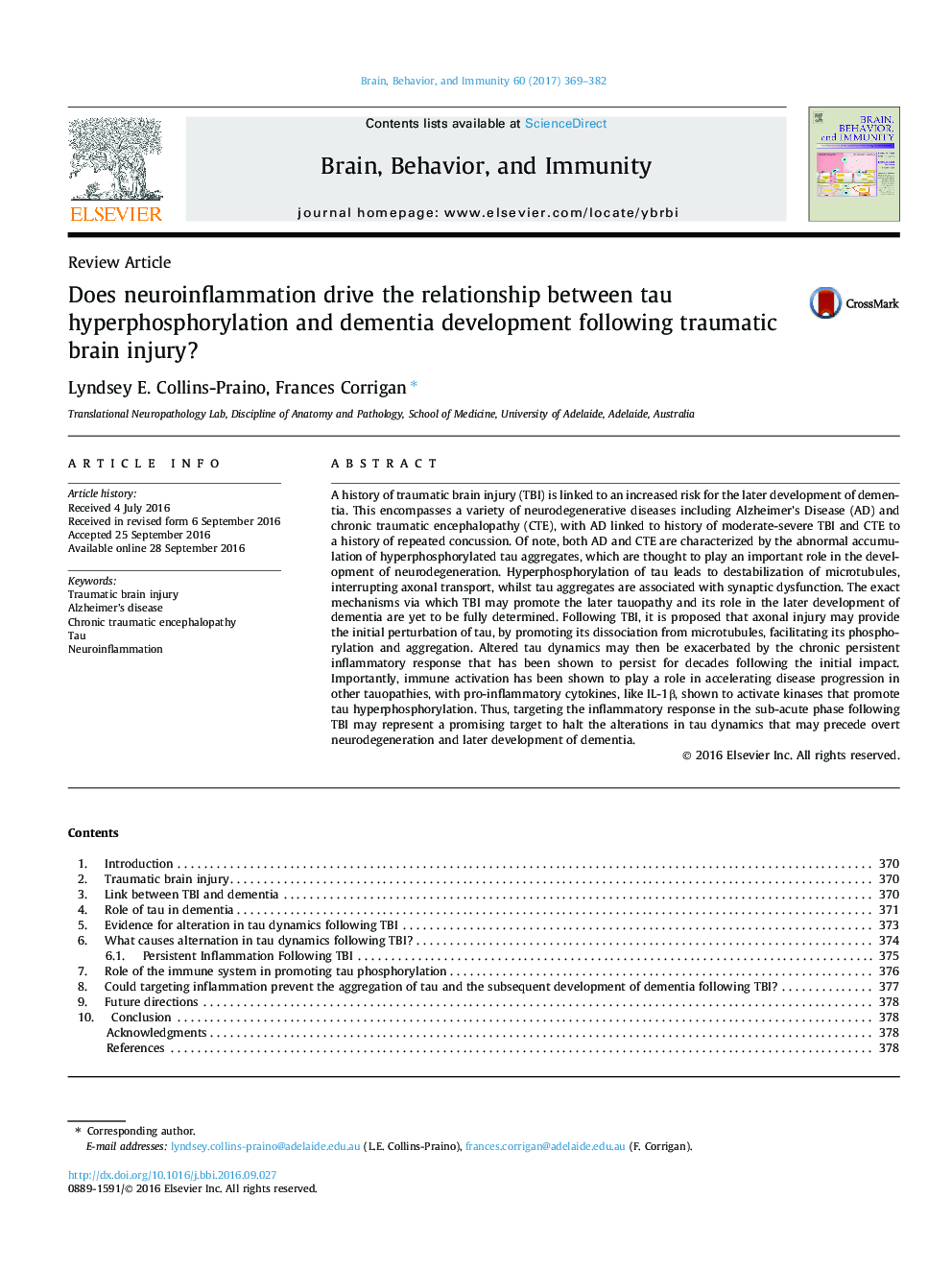| کد مقاله | کد نشریه | سال انتشار | مقاله انگلیسی | نسخه تمام متن |
|---|---|---|---|---|
| 5040764 | 1473907 | 2017 | 14 صفحه PDF | دانلود رایگان |
- Evidence suggests that sustaining a TBI may predispose to the later development of dementia.
- The long latency between the TBI and later dementia is an opportunity for treatment.
- TBI promotes the pathological accumulation of tau.
- Altered tau dynamics may be exacerbated by a persistent inflammatory response.
- Timely intervention modulating the immune response may prevent alteration in tau dynamics post-TBI.
A history of traumatic brain injury (TBI) is linked to an increased risk for the later development of dementia. This encompasses a variety of neurodegenerative diseases including Alzheimer's Disease (AD) and chronic traumatic encephalopathy (CTE), with AD linked to history of moderate-severe TBI and CTE to a history of repeated concussion. Of note, both AD and CTE are characterized by the abnormal accumulation of hyperphosphorylated tau aggregates, which are thought to play an important role in the development of neurodegeneration. Hyperphosphorylation of tau leads to destabilization of microtubules, interrupting axonal transport, whilst tau aggregates are associated with synaptic dysfunction. The exact mechanisms via which TBI may promote the later tauopathy and its role in the later development of dementia are yet to be fully determined. Following TBI, it is proposed that axonal injury may provide the initial perturbation of tau, by promoting its dissociation from microtubules, facilitating its phosphorylation and aggregation. Altered tau dynamics may then be exacerbated by the chronic persistent inflammatory response that has been shown to persist for decades following the initial impact. Importantly, immune activation has been shown to play a role in accelerating disease progression in other tauopathies, with pro-inflammatory cytokines, like IL-1β, shown to activate kinases that promote tau hyperphosphorylation. Thus, targeting the inflammatory response in the sub-acute phase following TBI may represent a promising target to halt the alterations in tau dynamics that may precede overt neurodegeneration and later development of dementia.
Journal: Brain, Behavior, and Immunity - Volume 60, February 2017, Pages 369-382
